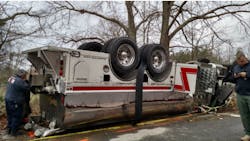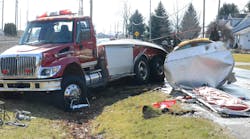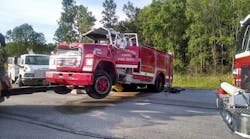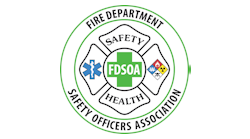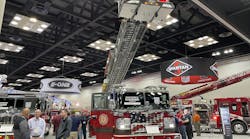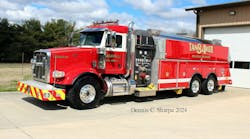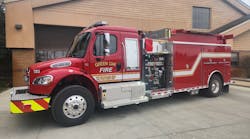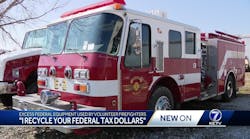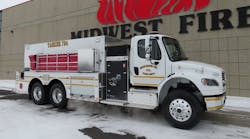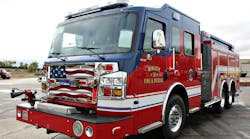Where do you start when a fire apparatus or ambulance crashes? According to, Gordon Routely, division chief, Montreal Fire Department, and Kevin Roche, consultant, Facets, too often fire departments do not have a plan or guidelines until faced with an emergency vehicle accident.
At this week's Fire Department Safety Officer Association’s Annual Apparatus Symposium in Scottsdale, AZ, Routely and Roche gave a presentation titled, "Investigating Crashes," providing a framework and basic procedures for conducting emergency vehicle accidents of line-of-duty deaths, injuries, close calls and other mishaps.
The main purpose of a safety investigation is to determine exactly what happened and to prevent it from happening again, the pair said. The investigation also provides complete documentation for further actions that might occur, including legal actions or lawsuits and to protect (or sometimes salvage) the reputation of the department.
Routely believes investigations need to be initiated not only in situations involving death or serious injury, but where serious damage to vehicles or equipment, major components or equipment failure, as well as near-miss incidents.
“The most dangerous fire truck in use today is a tanker,” said Routely. “We could do a three-hour session on investigating tanker rollovers. Tankers always rollover on left turns,” he said. “Why? Because you can turn faster on a left turn and slow down for right turns.”
In the process of doing an investigation, Routely stressed the focus of the written report is for the fire chief. The report should be thorough and informative; facts—nothing but facts; detached and impersonal and make essential recommendations.
“A safety investigation is non-disciplinary,” Routely said. “The facts are more important than the discipline. Somebody else deals with the discipline.”
If an accident is going to be investigated by the police, it is still important the fire department conduct its own investigation. The police want to find out if someone did something wrong. Fire department investigations want to find out what went wrong so they can fix it.
If you have a fatal crash, it might be a good idea to have a higher level authority come in to do the investigation," Roche added.
Routely encouraged departments to have established criteria for an investigation before an accident occurs. The fire department safety officer should be notified immediately to start the investigation process or when directed by the fire chief. The investigation team, led by a trained individual, should include the following: apparatus officer, a training officer—if operational training is an issue—and photo, video and scribe support. For a crash, include a collision investigator or heavy vehicle investigator if large apparatus is involved. A third-party expert may also be needed.
Depending on the accident, others that might be included in an investigation team are police, occupation safety and health, city or county safety division and private investigators.
On the question of a lawyer, Routely responded, “It’s a two-edge sword. Your lawyer may give you advice, but you have to make it clear you need to take action. If you change your procedures, you have admitted you did something wrong.”
Capturing information that is time and location sensitive is critical. Photos, videos and measurements should be obtained and secured. Identify witnesses and gather initial statements and verify the status of seatbelts.
Routely emphasized the urgency in obtaining initial statements as soon as possible. “Before stories are shared, blended or contaminated,” he said. Initial statements have precedence over PTSD concerns, because of the psychological impact of a group talking about an incident.
While police are pressed to open roadways after a vehicle accident, the vehicle should only be moved to a flatbed by a company experienced in moving crashed vehicles and to secured areas either on fire department property or other locked enclosures.
Lastly, technology today offers many options to aid in vehicular accidents. Vehicle data recorders require an individual who knows how to download the data. Mechanical inspection reports and maintenance records should be available, as well as any incident response records for the damaged vehicle. Driver training records and driver’s license should be gathered. Engine data should only be accessed by a third party. Seek any additional video or photo from all sources including YouTube or Facebook.
Roche concluded with, “Whatever you want people to know, put it on the first page of the report. If you think it will be a secret report—don’t kid yourself.”
